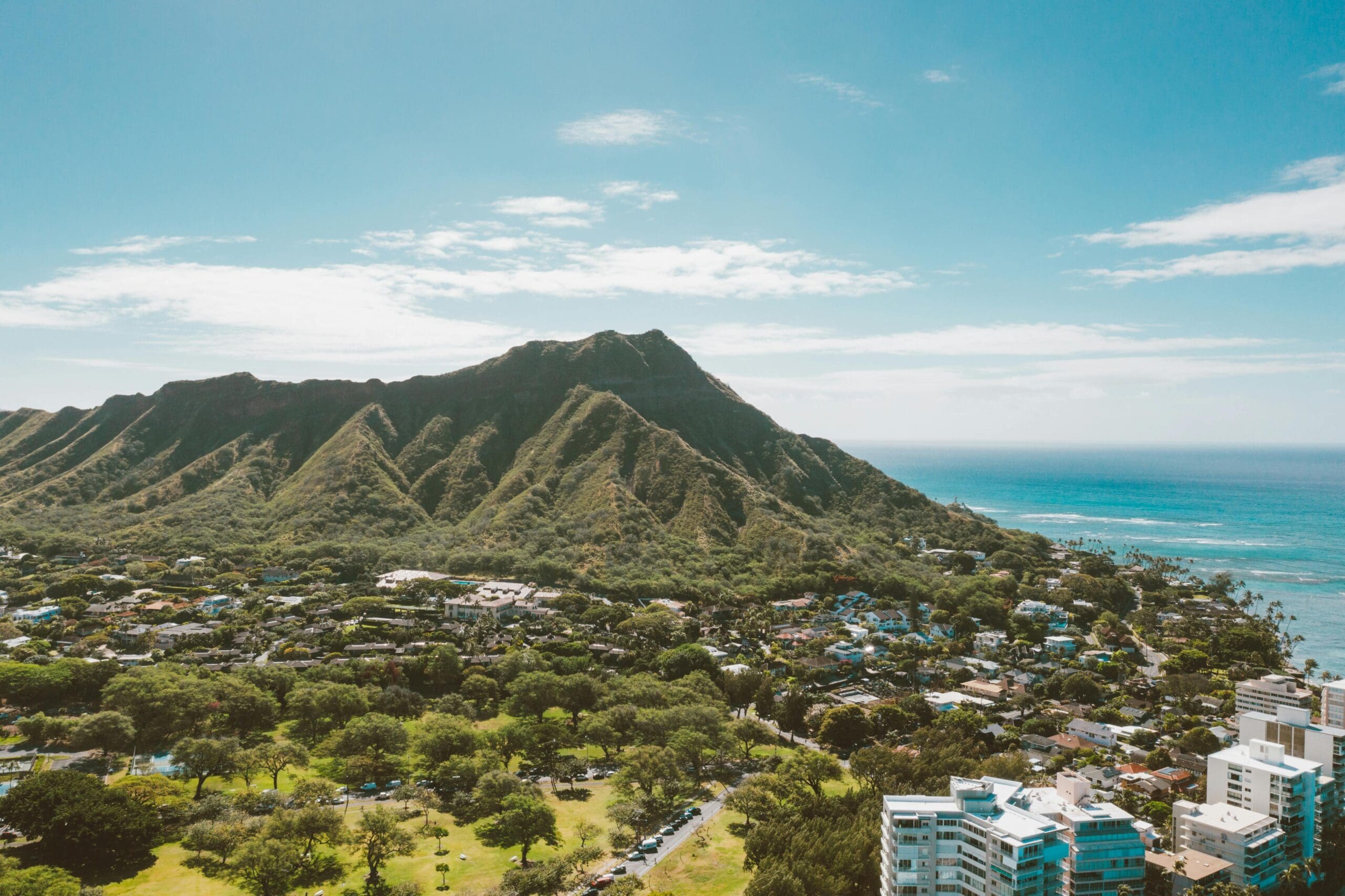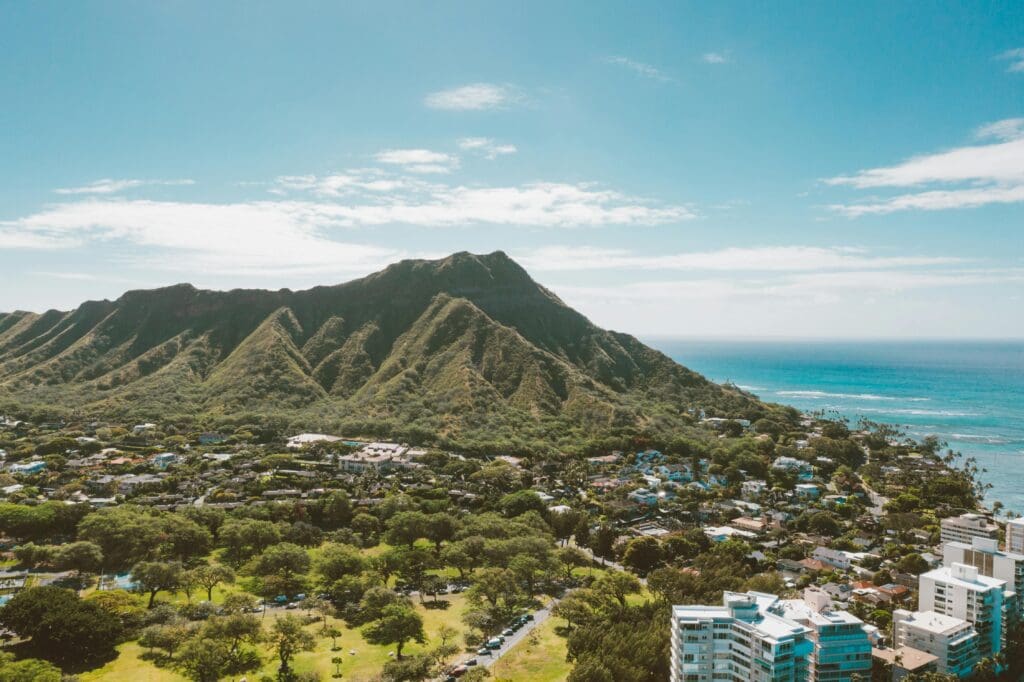
The Emotional Side of Relocating to Hawai’i: What No One Tells You
June 24, 2025
(5-min read)
Relocating to Hawai‘i is often painted as a dream come true with palm trees, a constant ocean breeze, and a slower pace of life. But for many newcomers, especially those moving from the mainland, there’s a part of the process no one talks about enough: the emotional fallout.
Once the boxes are unpacked and the excitement settles, unexpected waves of anxiety, regret, and overwhelm can start to creep in. From culture shock to stick shock, there’s a lot about living in Hawai‘i that people don’t fully understand until they’re actually here.
If you’ve found yourself wondering “Did I make a huge mistake?,” don’t worry, you’re not alone. The emotional ups and downs of relocating to Hawai‘i are totally normal and something you can absolutely navigate.
Here’s what I’ll cover:
The “Oh Sh*t” Moment
The “Oh sh*t, what did I just do?!” moment often hits at about 3–6 weeks after you move.
You’ve unpacked the boxes, explored a few beaches, maybe even started a job or enrolled the kids in school. Then it hits you: “This isn’t a vacation. This is your new life.”
And suddenly you realize this place is far from home, and it’s nothing like what you’re used to. This realization can feel overwhelming, disorienting, and even a little terrifying. Real life kicks in, and the dream starts to feel different from what you imagined.
Traffic is worse than you expected. Groceries cost more. Establishing a routine is harder than you’d hoped. You might be working more just to keep up with expenses, and finding the time (or energy) to relax or enjoy the beach becomes rare.
It’s not that the dream is gone. You’re adjusting to a new reality, and that takes time.

Sticker Shock + Housing Reality
This one is jarring and emotional in its own right.
The cost of living in Hawai‘i is higher than many expect, even after researching. Food, gas, electricity, medical care, it all adds up fast. Even people coming from other high-cost areas are surprised by how little you get for your money.
And housing? You’re likely paying a premium for far less space, comfort, and modern amenities than you’re used to. Think older homes with termite damage, outdated fixtures, roofs that need replacing, and no A/C…and still spending $800,000+.
It can feel like you got the bad end of the deal. Like you worked so hard to live here, and the quality of life you imagined doesn’t match the price tag.
Regret. Even If You Wanted This
Yes, you made the decision to move. You did your research, made your plans, and felt genuinely excited.
But suddenly you’re missing your favorite coffee shop. Your go-to lunch spot. Your hairdresser. Your friends. The little routines that made your days feel familiar and easy.
And after all the time, effort, and money you spent getting here, that wave of regret can hit hard. You start to wonder if you romanticized it all. Was this really worth it? That homesickness can sneak up in unexpected ways, but it doesn’t mean you made the wrong choice. It means you’re grieving what you left behind as you navigate something new and different. It means you’re human and it’s completley normal.
Culture Shock: Hawai‘i Is Not “Just Another State”
Moving to Hawai‘i isn’t like moving from California to Oregon.
It’s more like moving to another country, complete with its own languages, values, customs, and history.
You’ll encounter different holidays, different etiquette, different expectations for how to behave in shared spaces (like beaches, hikes, and parking lots). You’ll also be introduced to deeply-rooted local ways of doing things, from how people raise kids to how they gather together.
If you’re not ready for it, this culture shift can be overwhelming and make you feel out of place. But if you approach it with genuine curiosity and respect, it can be an invitation into something truly unique and one of the most rewarding parts of living in Hawai‘i.

Feeling Unwelcome (When You Didn’t Expect To)
This one surprises a lot of people.
You may arrive with deep respect and good intentions, and you still feel like you’re not wanted here. Some locals may treat you with skepticism, mistrust, indifference, or even open frustration.
It can hurt. Especially if you didn’t come to exploit the land or change the culture, you just wanted to build a life here. But part of relocating to Hawai‘i is understanding that your presence impacts a place with a long and complex history of colonization and displacement.
It’s not personal. But it’s something you’ll need to sit with, be open to learn about, and navigate with care and humility.
Grief, Anxiety, and Rebuilding a New Life
Even if this move was your dream, it’s still a loss.
You’ve left behind community, your routines, and the ease that comes from knowing how to navigate daily life. Now, you’re figuring out where to shop, how to make new friends, where your kids will thrive, and what “normal” looks like.
That grief is real. So is the anxiety that comes with starting over.
But here’s the good news:
Eventually, your new routines will take hold. Your body will relax. Your days will feel familiar again. And that new life will start to feel like your life.

Final Thoughts
Moving to Hawai‘i isn’t just a change of scenery, it’s a shift in everything that is familiar. That kind of transition can unsettle you in ways you didn’t expect.
But you’re not doing it wrong.
You’re adjusting, grieving, growing. And eventually, you’ll look back and realize just how much strength, openness, and heart it took to begin again in a place that is as unique as Hawai’i.
You’re not alone in how you feel, and it does get easier. I promise.
Your guide to relocating responsibly,
Born and raised in Hawai‘i, I help mindful movers relocate with clarity, care, and aloha.
Whether you’re dreaming, planning, or packing, you’re in the right place.
Hi, I'm Christina
Your RELOCATION GUIDE
Dreaming of Moving to Hawai'i?
Join the newsletter for mindful relocation tips, real cost insights, and honest advice from someone who knows Hawai‘i.
Thanks for joining! Check your inbox for a warm welcome & tips to get started.
No SPAM. Just thoughtful tips.
JOIN THE NEWSLETTER!
© 2025 CHRISTINA MOYER. all rights reserved. privacy policy. site by sugar studios + Showit